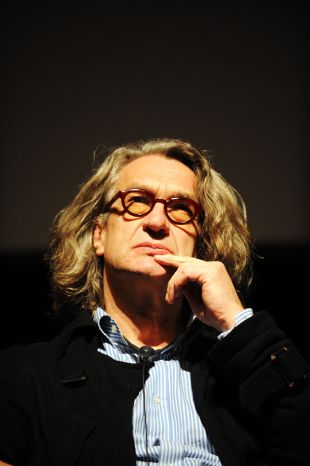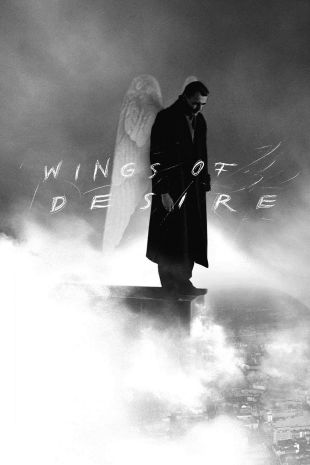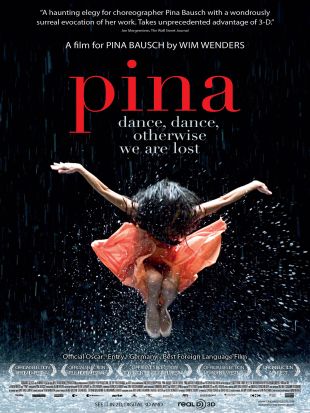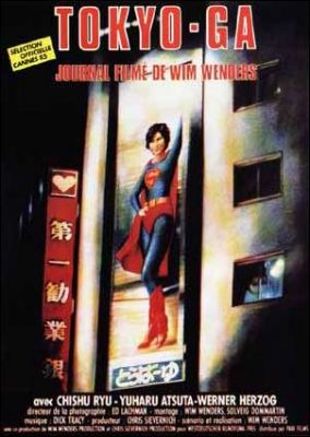Born in Dusseldorf just after the end of World War II, German film director Wim Wenders grew up with an insatiable appetite for American movies. Not all that interested in big-budget products, he, instead, developed a fascination with B-movies, notably melodramas and Westerns. After studying Medicine and Philosophy in his native country, Wenders took up art in Paris (a mecca for viewing American films), and then returned to his homeland to attend Munich's Academy of Film and Television. Like many of his French movie-fan brethren, Wenders began his career writing film criticism before directing a few short subjects of his own, and, in 1970, he and several other young filmmakers formed a production-distribution firm, Filmverlag Der Autoren. Summer in the City (1970) was Wenders' first feature film, but it was his 1973 adaptation of Nathaniel Hawthorne's The Scarlet Letter that first brought him attention outside of Germany. The film included many accomplishments, most notably coaxing a superb performance from Senta Berger as Hester Prynne, and managing to make the landscapes of Spain resemble 17th century New England.
At this point, Wenders began his road movie cycle, inspired by such American pictures as Easy Rider (1970) and Two-Lane Blacktop (1971). Three films in this genre followed in quick succession: Alice in the Cities (1974), The Wrong Move (1975), and Kings of the Road (1976). For his first English-language picture, The American Friend (1977), Wenders cast three of his American movie idols: actor Dennis Hopper (director/star of Easy Rider) and "cult" directors Nicholas Ray (Rebel Without a Cause) and Samuel Fuller (The Steel Helmet). Wenders would later co-direct Lightning Over Water (1980) with Ray.
Wenders' American-financed films Hammett (1980) and Paris, Texas (1983) were remarkable in their evocation of time and place, and the director could certainly have continued quite satisfactorily in Hollywood. However, he seemed to prefer activity in Europe, even though he was always one step ahead of his creditors -- especially when running his own studio, Gray City. Wenders' return to German filmmaking was rewarded in 1987 with the release of Der Himmel Über Berlin, or Wings of Desire. The story of an angel who wants to become human after finding earthly love met with an enthusiastic international response, culminating in a slew of honors for Wenders (including a 1987 Cannes Best Director award, a 1988 European Film Academy award for Best Director, and a host of awards from the New York Film Critics Circle) and an eventual 1998 American remake, City of Angels.
In the 1990s, Wenders' love of on-the-road location filming was again manifested in such films as Until the End of the World (1991) (filmed on four continents and designed to be "the ultimate road movie"), and Faraway, So Close (1993), a marathon experience (which originally ran 164 minutes) wherein an angel wanders about to observe the changing scene in a newly unified Germany. In 1995, Wenders made a road movie of a different sort with Par-Dela les Nuages/Beyond the Clouds, which he co-directed with legendary Italian director Michelangelo Antonioni. Set in various European countries, the film explored the vagaries of love and lust through the experiences of several principle characters. Receiving decidedly mixed reviews, it differed strongly from Wenders' next effort, Die Gebrüder Sklandanowsky/A Trick of the Light, a 1996 historical tribute to some of the more neglected developers of moving picture technology. Wenders returned to the States the following year with The End of Violence, a film that explored the effects of violence on the intertwining of people's lives. Featuring Bill Pullman, Andie McDowell, and Gabriel Byrne, it was not a great commercial or critical success, but Wenders did win acclaim the following year for The Buena Vista Social Club. A documentary about Cuban music, the film was the result of a successful collaboration between Wenders and musician Ry Cooder, who had previously supplied the score for the director's Paris, Texas.
In the years to come, Wenders would remain active behind the camera, directing films like Land of Plenty, and Pina.



